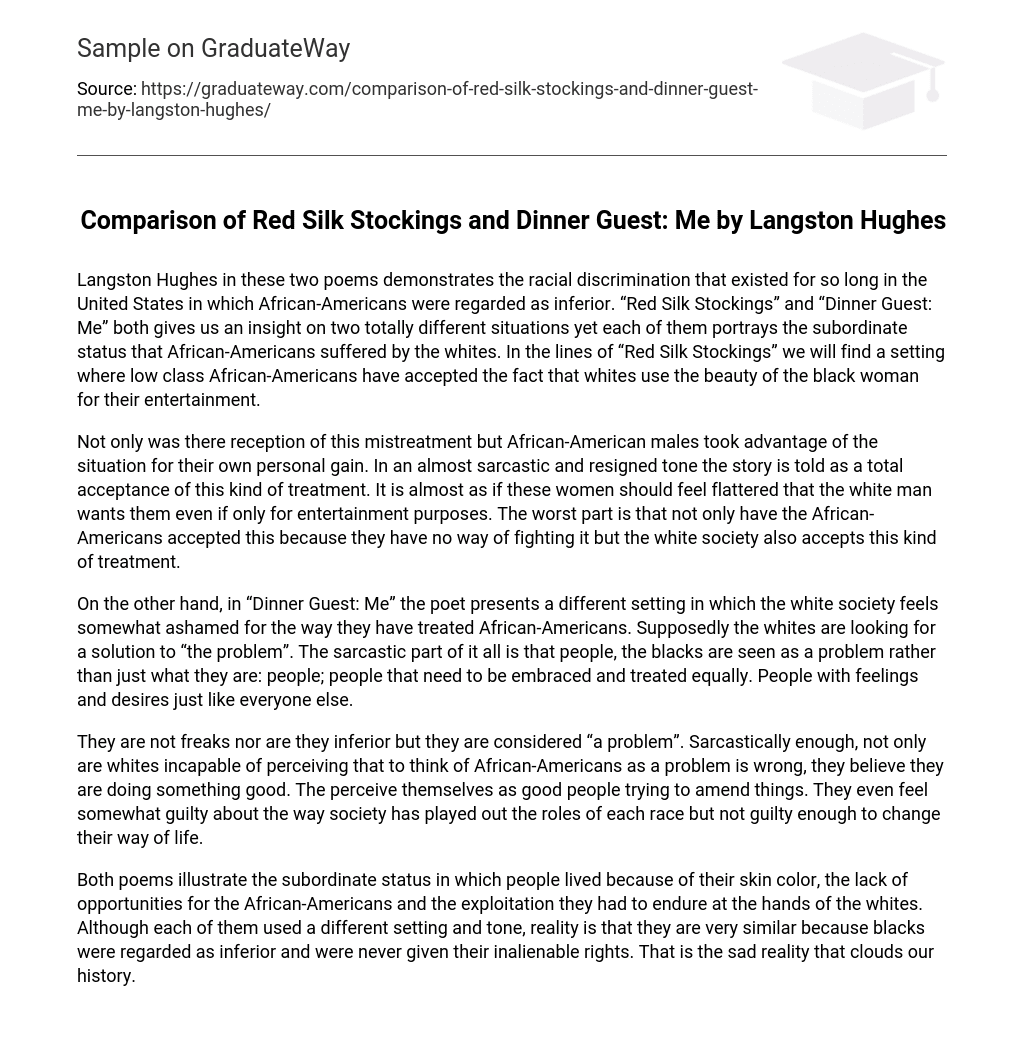Langston Hughes showcases the enduring racial discrimination experienced by African-Americans in the United States in these two poems. Both “Red Silk Stockings” and “Dinner Guest: Me” offer perspectives on distinct situations, yet both emphasize the subordinate position held by African-Americans in relation to whites. In “Red Silk Stockings,” the poem depicts a scenario where lower-class African-Americans have come to accept that white individuals exploit the beauty of black women for their own amusement.
The mistreatment was not only received, but African-American males also exploited it for their own benefit. The story narrates with an ironic and resigned tone, accepting this treatment completely. It is as if these women should be flattered that the white man desires them, even just for entertainment purposes. What makes it worse is that not only have African-Americans accepted this because they lack the means to resist, but white society also tolerates such treatment.
The poet presents a different setting in which the white society feels somewhat ashamed for the way they have treated African-Americans. Supposedly the whites are looking for a solution to “the problem”. The sarcastic part is that people, the blacks are seen as a problem rather than just what they are: people; people that need to be embraced and treated equally. People with feelings and desires just like everyone else.
Despite not being freaks or inferior, African-Americans are viewed as “a problem”. Interestingly, white individuals not only fail to recognize the wrongness of considering African-Americans as a problem, but they also believe they are making positive contributions. They perceive themselves as good people who are attempting to rectify societal imbalances. However, their guilt is insufficient to prompt any significant changes in their lifestyle.
Both poems demonstrate how African-Americans lived in a subordinate position due to their skin color, highlighting the limited opportunities they had and the exploitation they endured at the hands of whites. Although the poems differ in setting and tone, they ultimately convey a similar truth: black individuals were seen as inferior and consistently denied their inherent rights. This troubling reality continues to overshadow our history.





